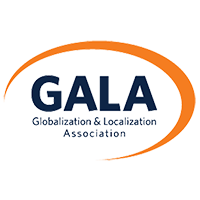Why Contract Research Organizations Need Perfect Translations
Having documents accurately translated in a timely manner is important to every industry, but Contract Research Organizations (CROs) have an even smaller margin for error.
New wonder drugs and revolutionary medical devices are released on a seemingly daily basis, and life sciences companies are struggling to keep up with the regulatory procedures necessary to get them to market. One way to get the job done quickly is to hire a CRO to speed up the often-messy process of conducting clinical trials and studies in the most applicable markets.
Clinical trials are global by nature, and documents like patient informed consent forms, investigator brochures, and clinical summary reports all need to be translated into the languages of the countries that the product is going to be marketed in. This is a tall order, and it’s the reason why CROs typically outsource the translation process. As with any other services, the quality of outsourced translation varies. Here are a few factors that make the medical translation process difficult, along with examples of what can happen if your translator gets them wrong.
Impossible Instructions
Medical instructions are complicated enough when everyone involved speaks the same language, but if even one word is badly rendered, patients and attending physicians can wind up taking actions that have dire consequences. As an example, consider the case of the 47 bungled prosthetic knee replacements in a single Berlin hospital. A badly-translated instruction manual was the culprit – the original English text referred to “non-modular cemented prostheses” which was translated as “prostheses that don’t require cement.” Accordingly, the prostheses were implanted without any adhesive whatsoever, with predictably non-spectacular results.
Unqualified Translators
The most common cause of translation errors in medicine is the same as in every other industry – a bad translator. Englishwoman Teresa Tarry found this out the hard way when she lost both her breasts to a completely unnecessary double mastectomy in Spain. A translation error led her doctors to believe she had a family history of breast cancer, when nothing could have been further from the truth. As you might expect, she wound up suing the hospital for €600,000 in compensation.
False Friends
Anyone who’s learned another language knows them well – they’re words in different languages that look or sound similar, but differ significantly in meaning. They also put Willie Ramirez into a wheelchair for the rest of his life back in 1980. Rushed to the hospital with a brain hemorrhage, his family had no access to a Spanish interpreter. When they told the emergency-room doctors that they thought Willie was “intoxicado,” he was treated for a drug overdose. As you might suspect, “intoxicado” does NOT mean “intoxicated” – it’s rather a catch-all term that means there’s something wrong with you because of something you ate or drank. Doctors only discovered the hemorrhage after days of ineffective treatment, and by then it was too late. The hospital was hit with a $71,000,000 judgement for not providing a professional interpreter.
The Argos Difference
Trust Argos Multilingual with your clinical trial translations, and you won’t need to worry about becoming a cautionary tale like the ones above. Our practice of combining multiple quality metrics into a single quality management system (QMS) that measures all quality assurance processes lets our quality assurance managers examine areas that need improvement while the system shows the results of past changes. We’ve also incorporated Six Sigma principles that analyze and categorize errors to determine why they occurred and suggest any corrective actions that need to be taken. This makes it easy to design unique workflows that help us deliver mistake-free translations for all your projects.




